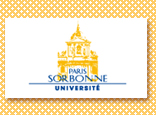| Industrial and summer placements are a gateway
for students to gain practical experience in a profession that they
are considering as a career.
Summer placements
Apply early, some placements for the summer period have closing
dates of December in the preceding year! Apply speculatively to
large and small companies. Most of us have a dream company: BBC,
FCO, Virgin. Take the bull by the horns and ask whether they offer
any summer placement schemes. Often, they are nearly as hard to
get hold of as proper jobs, but they are a great introduction to
the rat race.
Industrial placements
Many degree courses, known as sandwich courses have compulsory
industrial placements, where students have to take 6 months to a
year "out" in order to gain practical experience in the field that
they are studying. Companies want to have undergraduates working
for them because it permits identification of good ones for possible
permanent jobs. To get a placement, leave the student attitude and
dress sense in the student bar. On a placement you are in their
world, and have to act and dress as such.
Placements are a great way of learning about your chosen career
(even if it's just to find out that you really don't want to work
in that area after all!). You will no doubt get some training, the
chance to use your initiative and complete your own projects, names
of referees, and a salary.
The LX 330. Com team receives a number of
mails related to internship opportunities. We have decided to post
some of them online but students must be aware that we have not
tested them. We cannot guarantee their reliability, relevance or
integrity.
Our selection criteria are that they come from non-profit organizations
or are transmitted through trustworthy scholarly academic associations
like SAES and AFEA.
However, we welcome any information concerning such ads and welcome
any tip likely to help our students find alternative internship
programs.
CES volunteer internship opportunities
CES offers a limited number of volunteer programmes
per year for research students and interested individuals seeking
work experience in eco-cultural related disciplines. The selected
volunteers will have the opportunity to work with on-site scientists,
researchers or service staff in the focal areas of education and
skills development and scientific research.
- Community education and skills development in non-destructive
nature-based enterprises
- Environmental education
- Language training: English, French, German, Italian, Dutch,
Japanese, Russian and Spanish
- Health care and related fields of service.
Duration of internship : A period of 1 to 3 months
Internship fees: US $250 per month [includes
basic field accommodation, attached bathrooms & water supply,
local meals and field travel within the project site.
Application procedures: Interested students should
send their Curriculum vitae, application for volunteer internship
programme and a self-written essay (of not more than one A4 page)
should include the following:
- Describe the specific interest in obtaining work experience
in eco-cultural-related disciplines
- Describe as to what you would like to do (aims/objectives)
in relation to the main activities of CES and focal areas of Internship
opportunities.
Application deadline: Applications are welcomed
throughout the year.
Start date of Internship: Commencement of Internships is scheduled
for the 1st of each month. For example, 1st February, 1st June,
1st September, etc. This will follow three days of orientation.
Applications to be sent via email if possible.
After the initial review of applications, CES will request further
details within a period of two weeks.
At the end of the internship the volunteer interns
who have succeeded in fulfilling the assigned tasks will be awarded
a certificate from CES.
Interns who have been involved in the field research projects for
not less than three months will also have the opportunity to co-author
a research publication, depending on individual performance.
We would greatly appreciate if you could make
this information available to students in your programme that might
be looking for research/work experience opportunities overseas.
Further information (including details about
the Volunteer Internship Programmes) could be obtained from the
web site: www.cessrilanka.org. (website in the process of being
updated)
Snail-mail:
CES Volunteer Internship Programme
Centre for Eco-cultural Studies (CES)
PO Box 03, Diyakapilla, Sigiriya
Sri Lanka
E-mail: cesvolunteers@hotmail.com
and centeco@sltnet.lk
|



